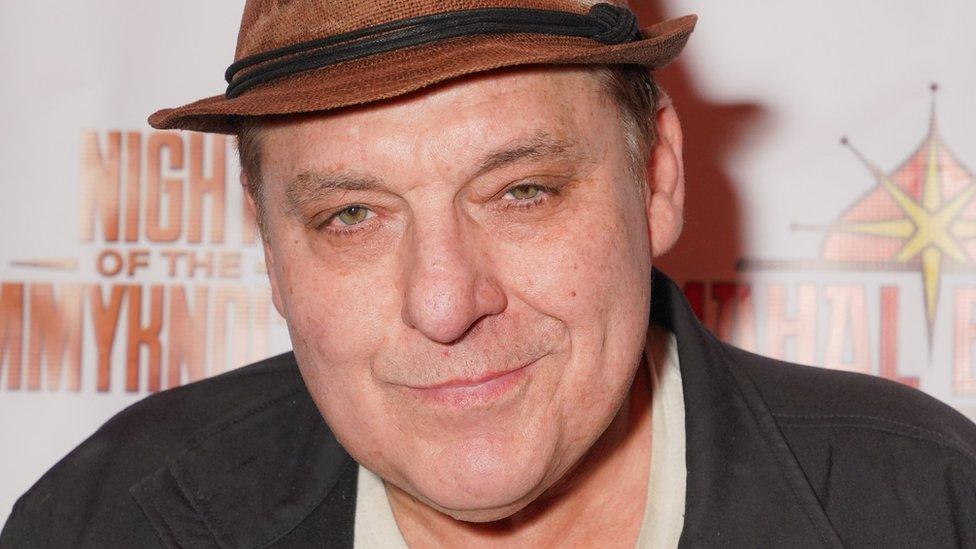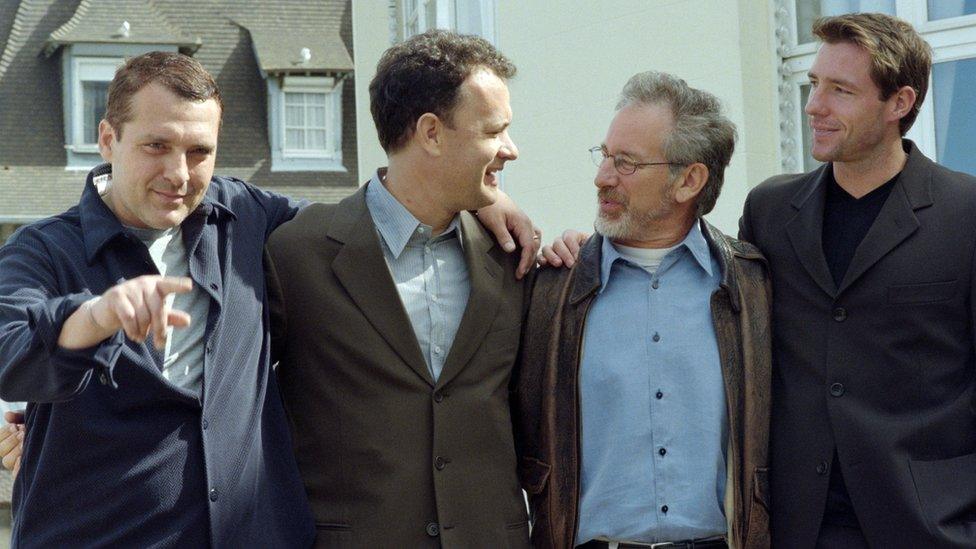Tom Sizemore: No further hope for actor after brain aneurysm - manager
- Published

Tom Sizemore suffered a brain aneurysm on 18 February
The family of US actor Tom Sizemore are "deciding end of life matters" after he suffered a ruptured brain aneurysm, his manager has said.
Sizemore, 61, is known for roles in films like Saving Private Ryan, Black Hawk Down and Natural Born Killers.
He also had drug problems and served jail time for domestic violence.
Charles Lago told US media: "Today doctors informed his family that there is no further hope and have recommended end of life decision."
He added: "The family is now deciding end of life matters and a further statement will be issued on Wednesday.
"We are asking for privacy for his family during this difficult time, and they wish to thank everyone for the hundreds of messages of support and prayers that have been received. This has been a difficult time for them."

Sizemore (left) with Saving Private Ryan co-stars Tom Hanks and Edward Burns, and director Steven Spielberg in 1998
Sizemore found fame in the 1990s, and was at Tom Hanks' side as Sergeant Horvath in the Oscar-winning Saving Private Ryan in 1998.
His other films included Pearl Harbor, Heat and True Romance. He was nominated for a Golden Globe for playing a mobster in the 1999 TV movie Witness Protection.
With fame and money came a heavy drug habit, and he wrote in his autobiography about addictions to heroin and crystal meth.
In 1997, he was arrested on suspicion of assaulting his wife, actress and tennis player Maeve Quinlan. They divorced two years later.
In 2003, he was sentenced to six months in prison, external for beating up his girlfriend, the former "Hollywood madam" Heidi Fleiss, and was ordered to complete rehab and anger management.
In recent years he made a guest appearance in the Netflix hit Cobra Kai and had a recurring role in the 2017 revival of David Lynch's cult TV show Twin Peaks.
He suffered the ruptured aneurysm on 18 February.